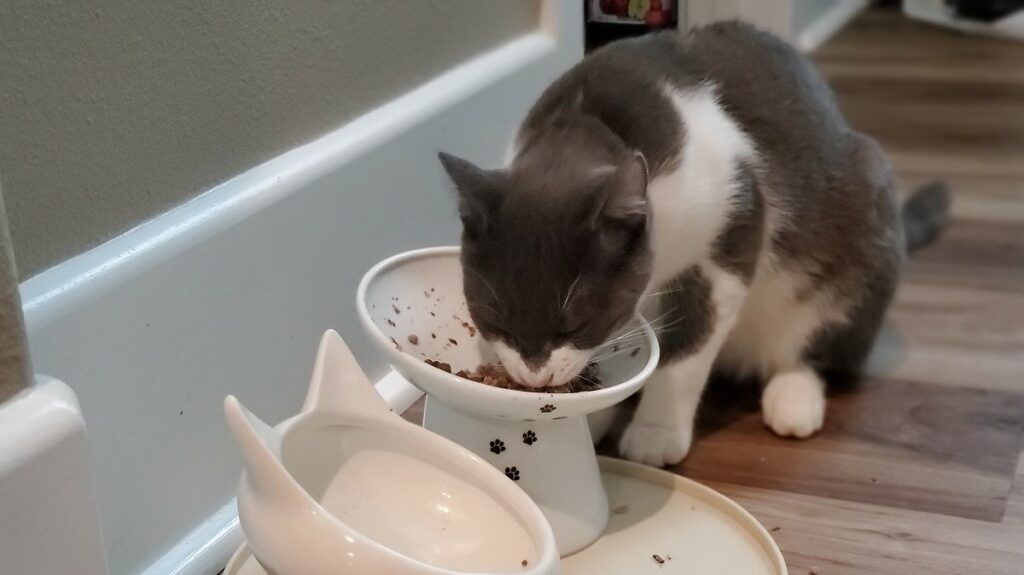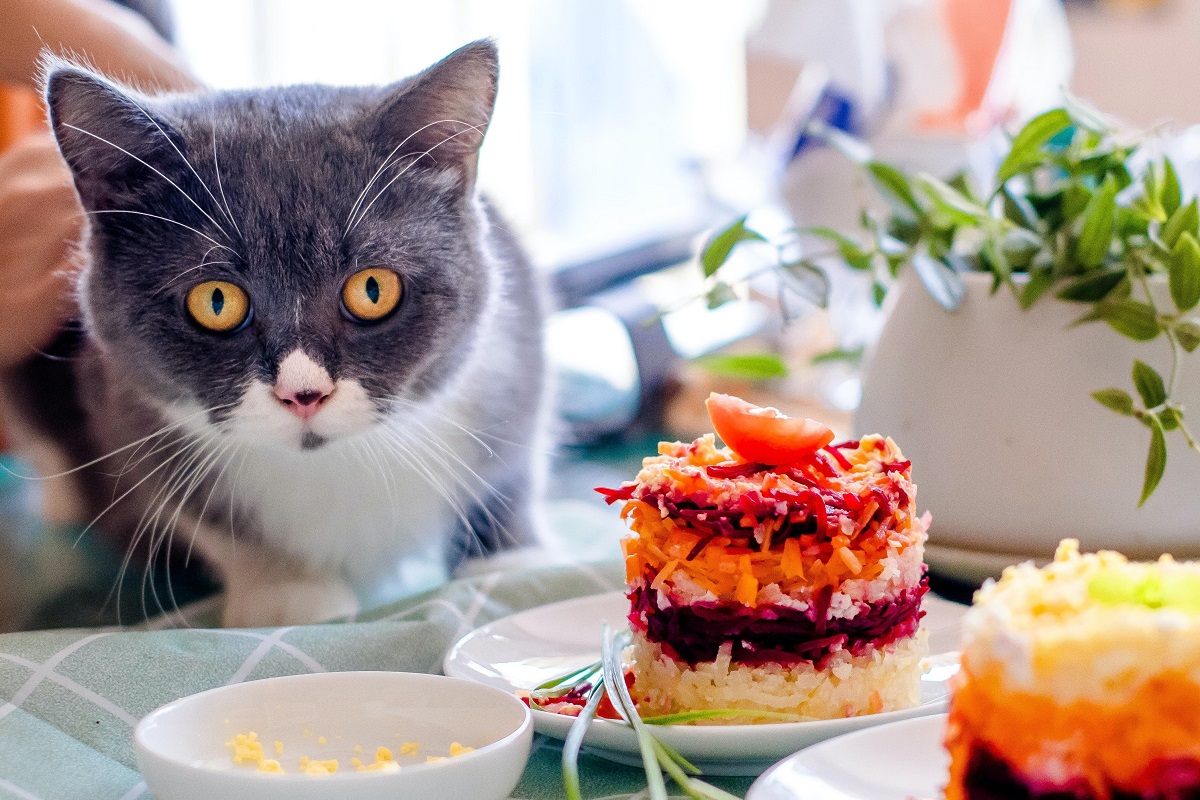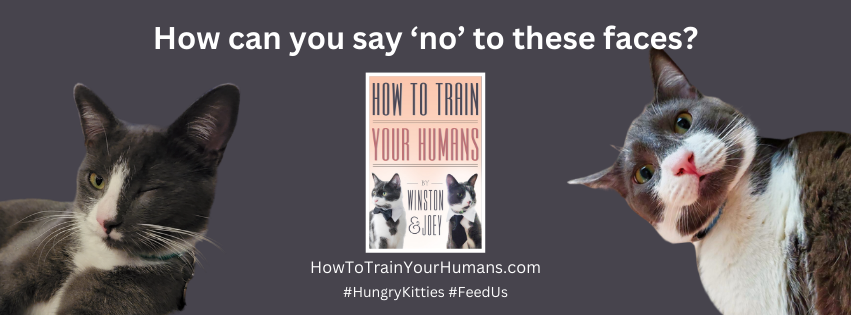It is a smell you do not forget. You walk past the litter box, pause, and realize your cat has left something far more concerning than the usual tidy clumps. Diarrhea in cats is messy, smelly, and never part of the plan, but it is also one of the more common feline health complaints.
While it might be tempting to chalk it up to something minor, repeated or severe diarrhea is never something to ignore. It can be a warning sign of anything from stress to serious illness, and your job as the loving human in the equation is to get to the bottom of it.
So let’s take a look at why your cat’s digestive system might be throwing a tantrum, what to do about it, and when it is time to call the vet.
It Could Be Something They Ate
Let’s start with the obvious. Cats have very particular digestive systems, and a sudden change in food, spoiled leftovers, or a bite of something off-limits can send them straight to the bathroom. Even treats that are meant for cats can sometimes cause trouble if introduced too quickly or given in large amounts.
The most common food-related causes of diarrhea include:
- Switching to a new brand or formula too fast
- Sneaking a taste of human food
- Eating spoiled food
- Consuming dairy, which many cats cannot tolerate
If the cause is diet-related, the diarrhea is usually short-lived and clears up within a day or two. That said, if your cat is vomiting, lethargic, or skipping meals, it is more than a simple food slip.
Stress Can Trigger Digestive Drama
Yes, cats get nervous stomachs too. Stress is a surprisingly common cause of digestive upset in cats, especially in those who are naturally anxious or adjusting to a big life change. A move, new pet, house guests, or even a change in routine can be enough to disrupt their bathroom habits.
If your cat seems skittish, is hiding more than usual, or has recently had their world turned upside down, stress may be behind the mess. Consider giving them a quiet space to retreat, more playtime, and a consistent routine to help them feel secure.
Parasites Are Often to Blame
If your cat has persistent or recurring diarrhea, parasites could be the culprits. Giardia, coccidia, and roundworms are just a few of the unwanted guests that can wreak havoc in your cat’s gut. This is especially true for kittens or cats adopted from shelters, where exposure is more likely.
Signs of a parasite issue often include:
Related read: Leftover Wet Cat Food Does Not Age Like Fine Wine.
- Loose stools that last more than a few days
- A pot-bellied appearance in kittens
- Weight loss or lack of appetite
- Visible worms or eggs in the stool
Your vet can run a fecal test to identify parasites and prescribe the right medication to evict the intruders.
Food Allergies or Intolerances Can Develop Over Time
Just like people, cats can develop food sensitivities, even to ingredients they have eaten for years. The most common culprits are proteins like chicken, beef, or fish, but grains and additives can also cause problems.
If your cat’s diarrhea keeps coming back, even on the same diet, it may be time to try an elimination diet under veterinary supervision. This can help identify the trigger and give your cat some relief.
Illness or Infection Might Be Involved
More serious causes of diarrhea include bacterial infections, viruses, and chronic conditions like inflammatory bowel disease (IBD) or hyperthyroidism. These issues are usually accompanied by other symptoms, including:
- Weight loss
- Poor coat condition
- Vomiting
- Lethargy
- Increased thirst or urination
If your cat’s diarrhea is ongoing, severe, or paired with any of the above, your vet will likely recommend bloodwork, stool tests, or imaging to pinpoint the problem.
Your Cat Could Be Reacting to Medication
If your cat recently started a new medication, diarrhea could be a side effect. Antibiotics, in particular, can disrupt the balance of good bacteria in the gut, leading to temporary digestive upset.
Never stop a prescribed medication without talking to your vet, but do reach out if your cat seems to be reacting poorly. Your vet may adjust the dose, switch medications, or suggest adding probiotics to help restore balance.
When to See the Vet
Some cases of diarrhea are mild and clear up quickly on their own. But there are a few signs that mean it is time to stop guessing and call the vet:
- Diarrhea lasting more than 48 hours
- Blood or mucus in the stool
- Repeated vomiting
- Signs of dehydration (sunken eyes, dry gums, lethargy)
- Loss of appetite or weight
- Diarrhea in kittens, senior cats, or cats with other health conditions
Diarrhea can lead to dehydration very quickly, especially in smaller or more vulnerable cats. It is always better to be safe than sorry.

Dear Diary, You won’t believe the day I’ve had. The humans switched my food today. Apparently, they think “gourmet salmon” sounds fancy. It smelled like the bottom of a fish market on a hot day! I gave it a shot (I mean, come on, it’s food) but ended up doing the ‘litter box sprint’ all afternoon. Life lesson: trust the chicken, not the fish. #BadKittyTummy #GourmetNotGourmet #TrustTheChicken #MyButtHurts
Joey
How to Help at Home (If the Case Is Mild)
If your cat has a mild case and is otherwise acting normal, there are a few things you can do while keeping a close eye on their condition:
- Make sure they have access to fresh water at all times
- Hold off on treats or rich foods for a day or two
- Stick to a bland diet (like plain boiled chicken) if advised by your vet
- Scoop the litter box frequently to monitor stool changes
You can also ask your vet about probiotics or over-the-counter options made for feline digestive support. Just make sure not to use human medications, which can be dangerous for cats.
Final Thoughts: Trust Your Nose and Your Instincts
Let’s be honest. No one enjoys discussing their cat’s bathroom habits, especially when things get messy. But diarrhea is a sign your cat’s body is trying to deal with something. Whether it is a harmless reaction to a new treat or a clue to a bigger issue, paying attention to these signs is an important part of being a responsible cat parent.
Keep your scooper handy, your eyes open, and your vet on speed dial if anything seems off. With a little care and a lot of observation, you can help your cat’s tummy return to purring, not churning.
Sources:
Feline Diarrhea Causes and Treatments https://www.vet.cornell.edu/departments-centers-and-institutes/cornell-feline-health-center/health-information/feline-health-topics/diarrhea-cats
Common Digestive Issues in Cats https://vcahospitals.com/know-your-pet/diarrhea-in-cats
Cat Diarrhea: What You Need to Know https://www.aspca.org/pet-care/cat-care/cat-diarrhea
Managing Cat Digestive Upset https://www.petmd.com/cat/symptoms/what-causes-cat-diarrhea-and-how-stop-it
Recent Posts
Explore why cats sleep so much, including the evolutionary reasons and the health benefits they derive from their extensive sleep patterns.
Explore the causes of cat dandruff, its implications, and effective ways to deal with it so your feline friend remains happy and healthy.


